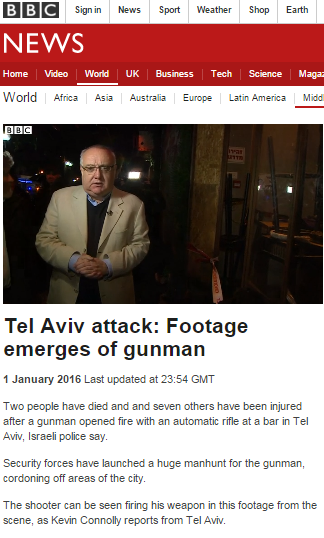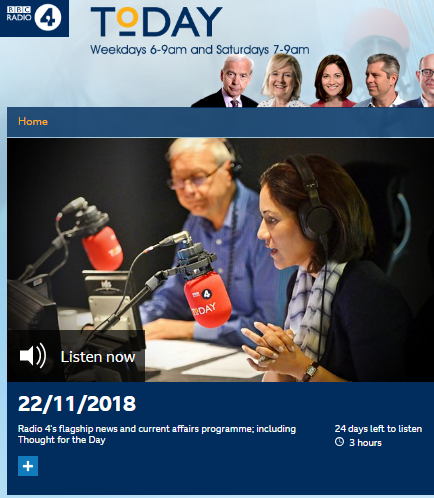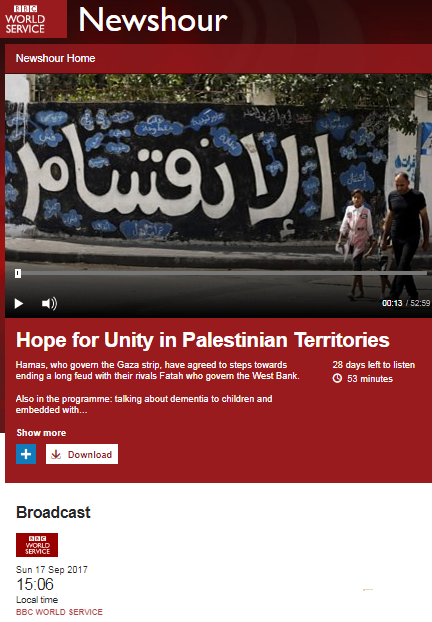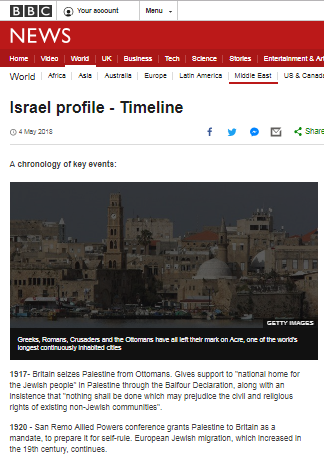BBC News coverage of the shooting attack which took place in Tel Aviv on the afternoon of January 1st included an article which continued to appear on the BBC News website under the headline “Tel Aviv shooting: Two dead, Israeli police say” long after the murders had been confirmed and the identities of the victims released into the public domain.
A filmed report for BBC television news programmes was also posted on the BBC News website under the title “Tel Aviv attack: Footage emerges of gunman“.
In that filmed report, BBC Jerusalem bureau correspondent Kevin Connolly told viewers:
“At first the motive for the shooting wasn’t clear. There were speculations it was linked to criminality and may even have been a hate crime against the gay community. But gradually it emerged that the police had identified a suspect and that the killings were almost certainly linked to the long-running dispute between Israel and the Palestinians.”
Readers of later versions of the written report found ‘analysis’ of the story from Kevin Connolly which included similar messaging.

As those in Israel who watched or listened to real-time reporting as the incident unfolded will know, there was indeed a lack of clarity concerning the background to the incident in the first hours after the lethal attack.
Local media outlets moved from scheduled programming to rolling coverage of the attack and – as happens worldwide in such cases – audiences heard journalists and interviewees hastily recruited to fill time and the vacuum created by the absence of verified information engaging copiously in unsubstantiated conjecture and guesswork for hours on end.
The “speculations” concerning a possible hate crime against the gay community which Connolly found it appropriate to amplify were not voiced by official sources but by local journalists unable to bring their audiences concrete information during an unfolding event and later further constrained by a gag order on publication of details of the case.
BBC guidance on reporting war, terror and emergencies stresses that “[a]t such times, when there may be conflicting information and opinions, and with reliable information hard to come by, we need to be scrupulous in applying our principles of accuracy and impartiality.”
The BBC’s editorial guidelines on accuracy state:
“The BBC’s commitment to accuracy is a core editorial value and fundamental to our reputation. Our output must be well sourced, based on sound evidence, thoroughly tested and presented in clear, precise language. We should be honest and open about what we don’t know and avoid unfounded speculation.” [emphasis added]
The editorial decision to amplify that particular item of unsupported speculation on various platforms – and especially after the circumstances of the incident had become clearer and its irrelevance demonstrated – is therefore one which requires explanation from the self-styled “standard-setter for international journalism”.




